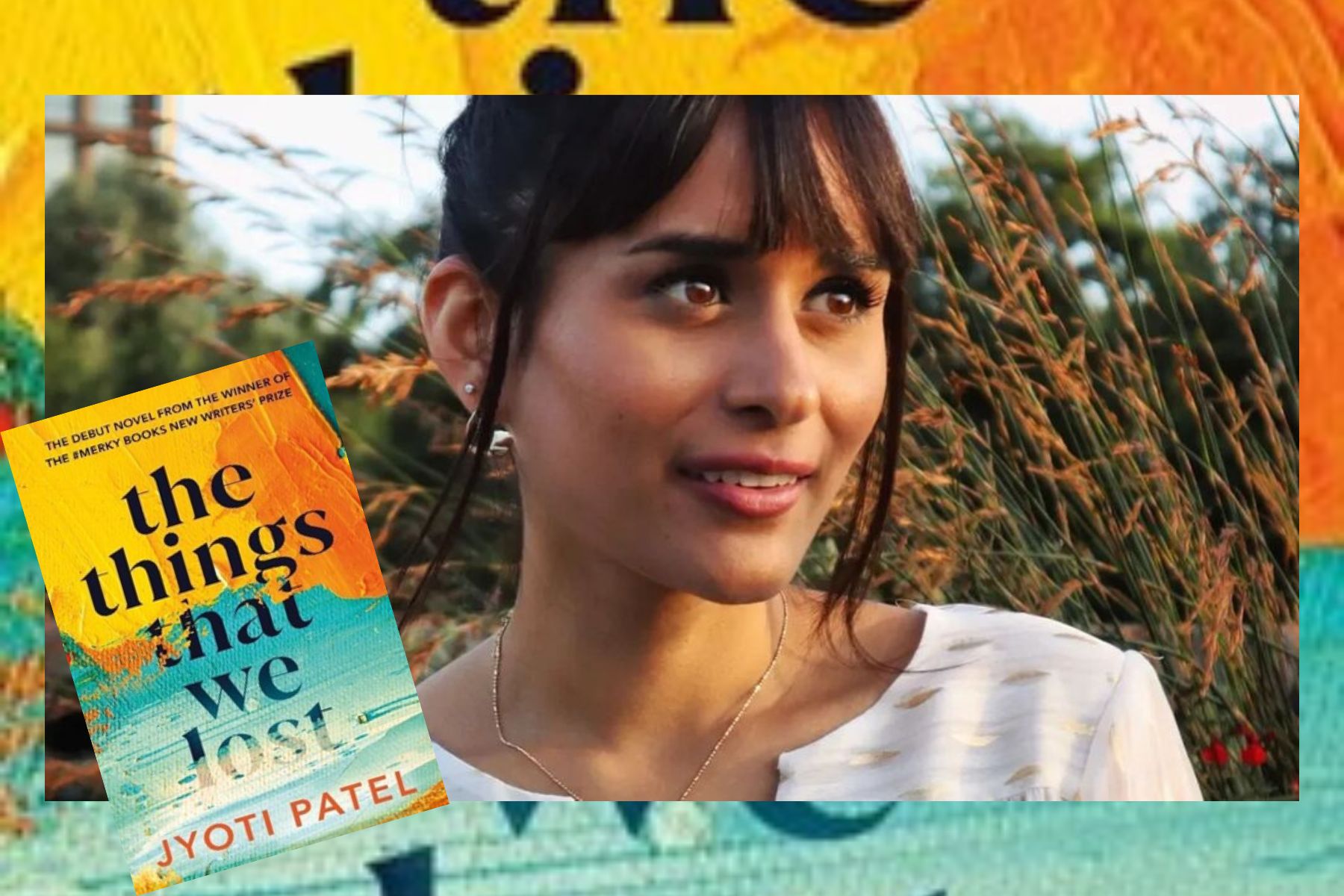This moving coming-of-age story explores what it means to be a person of colour in Britain today, discussing themes of identity and the stories that we tell ourselves to manage trauma. Paying homage to her Gujarati roots, The Things That We Lost is a beautifully tender exploration of family, loss, and the lengths we go to, to protect the ones we love.
Nik yearns to know more about his father, who died before he was born. His mother, Avani, held hostage by her guilt surrounding his death, refuses to share any information with her son. Nik is forced to create a fragmented image of his father, pulled together from hushed whispers at family gatherings and photos stolen from his mother’s bedroom.
When his grandfather dies, secrets are revealed, and everything Nik thinks he knows about his father is turned on its head. Nik makes it his mission to discover the truth about his father and the circumstances of his death, uncovering painful truths in the process.
. . .
I sat down with Jyoti Patel to talk all about this beautifully tender exploration of family, loss, and the lengths we go to, to protect the ones we love.
Your inspiration to write this book was to answer questions about your own life. How would you define home for yourself, where do you believe you most belong?
London has always felt most like home to me, probably because it’s where all my loved ones are, but also because it’s the place I’ve felt most accepted. It’s the same for Nik in The Things That We Lost. To him, London embodies the comfort of a diverse city where he can just exist authentically, where the colour of his skin doesn’t define how people perceive him.
Books end with a final chapter but relatable stories like these continue afterwards. How do you imagine the lives of the characters from The Things That We Lost play out once the book ends?
It would have been quite neat to include a conversation after Avani opens the door to Nik both metaphorically and literally at the end of the novel, but I finish the book where I do so that things are left open-ended. I didn’t want to end with a tidy ribbon on top because that’s just not how life plays out in the real world.
By the end of the novel, I wanted to show that Avani and Nik had both grown and evolved individually but also as mother and son. I wanted to show Avani finally beginning to process everything she’d blocked herself from. I wanted to show Nik accepting himself just as he is, and accepting that he’ll never have all the answers he seeks, which is the closest ending to the reality that I could imagine.
After publishing your book, I imagine that you have received thoughts from other immigrants or Desi people struggling with their mixed identities. Could you share what that has been like for you?
I wrote this book to connect with people and to make connections between my own experiences. It’s meant a lot having readers contact me to say I’ve articulated experiences that they couldn’t find words for themselves or parts of our culture that they’ve never seen depicted in literature before. I think it means a lot to see characters that they can relate to.
Even though there are many British Gujaratis in the UK, I think many of us haven’t yet seen ourselves authentically in British art or literature. Being able to create a little space on British bookshelves for our stories has been incredible.
What’s next for Jyoti Patel?
I’m currently working on my next novel, which follows another British Gujarati family living in London. I’m really enjoying getting to know the characters and can’t wait to share their story with the world.
. . .
Purchase and read The Things That We Lost by Jyoti Patel today. Don’t forget to follow Jyoti on Instagram or Twitter! This book is published by #Merky Books on 12 January 2023, £16.99, in HBK, EBK, and audio.


Leave a Reply